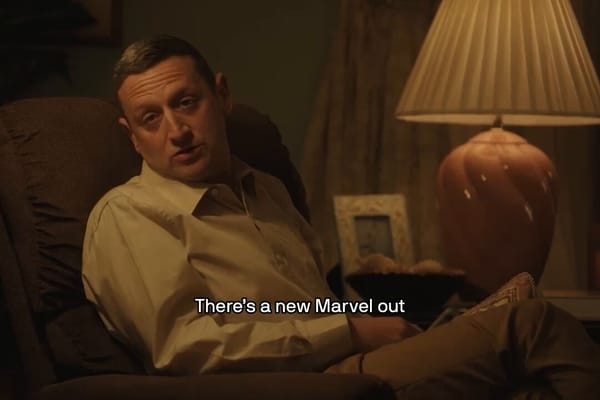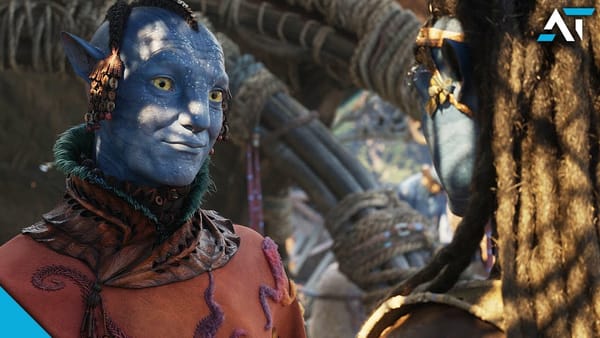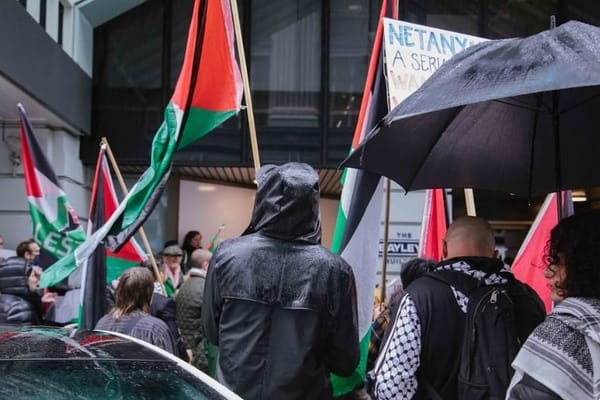The Activist Canon: Preparing for the battle that comes after One Battle After Another
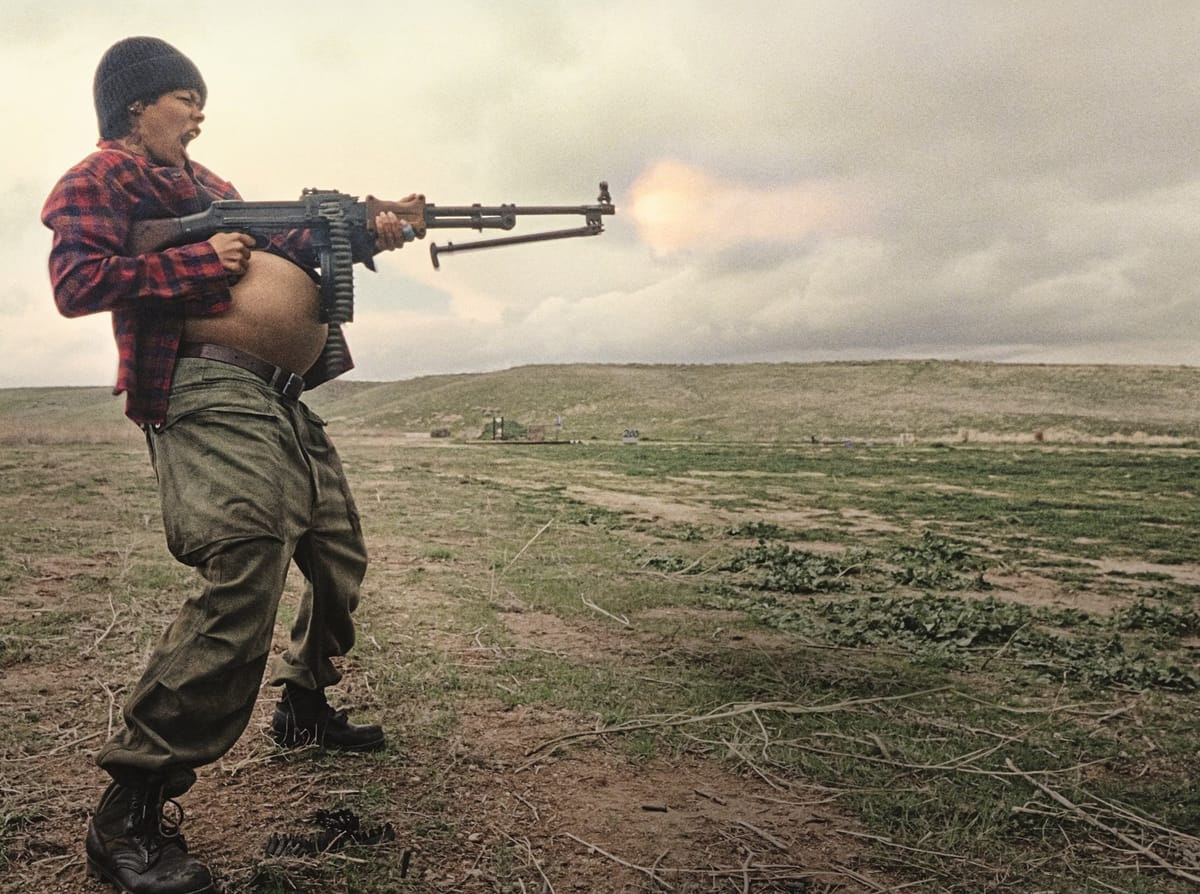
This is the fourth entry in my ongoing series on films about organising and how they can help us make sense of the challenges of activism. My own experience organising is one of constant learning (I'm not claiming to be any kind of expert!) but I find cinema a useful lens through which I can make sense of it.
I have previously written about three of my favourite films of all time: Isao Takahata's Pom Poko, The Dardenne Brothers' Two Days, One Night and Merata Mita's Patu! This time around, I'm going to write about a brand new film. If you have not yet seen One Battle After Another and care about spoilers, I'd strongly recommend going to see it before you read this.
A whole line of revolutionaries
Paul Thomas Anderson's newest film mostly takes place in the 2020s.[1] Bob Ferguson (Leonardo DiCaprio) is a disillusioned former activist and single father who must track down his teenage daughter Willa (Chase Infiniti) when she is targeted in a brutal US State crackdown. The attack on their family is led by Col. Steven J. Lockjaw (Sean Penn), a fascist struggling with a serious case of having a stick up his ass. But it didn't start there...
The film opens in the 2000s when Bob (aka Pat Calhoun, aka Ghetto Pat aka The Gringo Coyote) and Willa's mom Perfidia Beverly Hills (Teyana Taylor) first run afoul of Lockjaw. They are part of a revolutionary group called the French 75[2] whose actions are aimed at furthering a range of causes with particular emphasis on justice at the US / Mexico border. At the end of the battle, Perfidia disappears, leaving behind her lover and baby daughter. But it didn't start there...
When Perfidia's mother Grandma Jennie (Starletta DuPois) finds out her daughter is pregnant with Willa, she excoriates Bob ("My child comes from a whole line of revolutionaries, and you look so lost. What are you going to do about this baby?"). Based on Grandma Jennie's age, we can assume she was involved in 20th Century activist movements, possibly the fights for Black civil rights and/or Second Wave feminism. But it didn't start there...
One Battle After Another is loosely based on Thomas Pynchon's Vineland[3]. That book mostly unfolds during the 1980s, another decade defined by a shift to hard-right politics, especially the war on drugs. Like Bob, protagonist Zoyd Wheeler is a washed-up stoner, no longer involved in revolutionary politics whose daughter (Prairie in the book) catches the attention of an embodiment of American fascism (Brock Vond). But it didn't start there...
In Vineland, Zoyd met Prairie's mother Frenesi Gates in the 1960s, another decade in which activists directed their attention against the genocidal American empire against the backdrop of a brutal invasion of the Global South. She-too comes from a long line of revolutionaries. Her mother Sasha was a screenwriter during the 1950s Hollywood blacklist and Pynchon describes her family as:
"old, proud, and strong union people, surviving in one of the world's worst antiunion environments - Spool tenders, zooglers, water bucks and bull punchers, some had fought in the Everett Mill wars, others from the Becker side had personally known Joe Hill, and not mourned, and organized..."
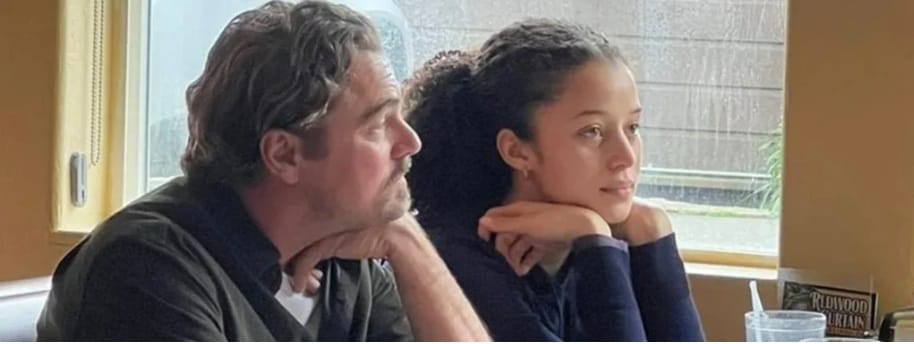
What time is it?
When we're standing on the shoulders of giants, it can be hard to notice that people smaller than us may themselves need shoulders to stand on.
By the time One Battle After Another reaches the present day, Bob has been rendered completely impotent by the weight of his countless antecedents, both diegetic and non-diegetic. His days of blowing shit up and liberating people from immigration detention centres are behind him. Instead, he spends his life in a cross-faded haze, rewatching The Battle of Algiers[4] ad nauseum.
Bob may have fried his brain but he's managed to hold onto his core beliefs. When he has an interview with Willa's teacher, she raves about the 16-year old's potential. The consummate girldad, Bob isn't the least bit surprised that he raised a genius, he's more concerned about whether she's being taught the right things. Lighting up a joint in the teacher's office, he grills her on her curriculum. His heightened (but mostly justified) paranoia has made him overly protective of his daughter; now that she's starting to have more of a life outside their offgrid cabin, it's very important that she gets taught about Ben Franklin's slaves and the US occupation of the Philippines.
This life she's developed independent of him ends up being the source of a lot of the film's tension. In one of the funniest scenes, Willa's school friends come to pick her up for the school dance. After trying to get his head around the teenagers' pronouns ("I just want to be polite!"), Bob interrogates them. None of this is framed as malicious, the guy just struggles with the present. He stopped evolving sometime during the War on Terror but as his little girl grows up, her own political evolution just keeps going.
Many of us probably know people like Bob in our own communities. People who were radical back in the day but have just kind of stagnated. Growing old is inevitable and it's pretty normal to lose touch of some things. But left unchecked, people's politics can curdle as they grow older. In extreme cases, a one-time revolutionary can become a reactionary or a TERF or a Zionist. Sometimes life just gets in the way and material comfort engenders a rightward drift. Some people stay in activist movements but are overly critical of newcomers, holding tightly onto their way of doing things or just refusing to let the next generation make their own mistakes.
But it doesn't have to be like that.
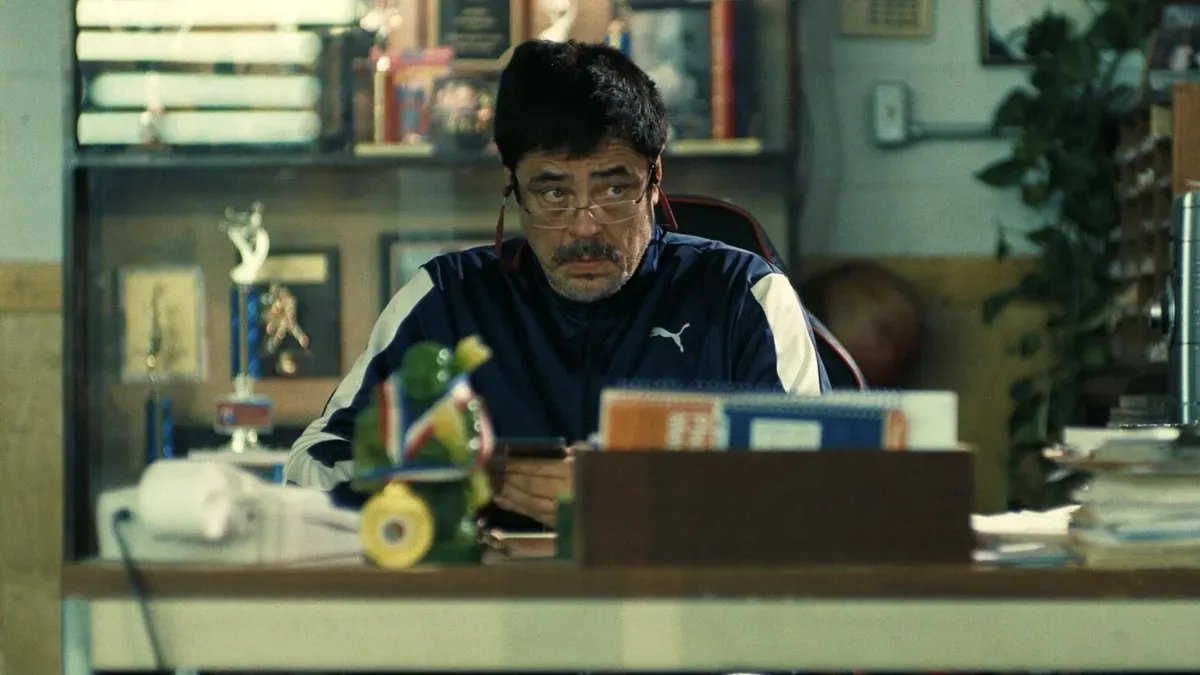
I've got a little Latino Harriet Tubman situation going on
In my piece on Pom Poko I talked about a revolution that fails. That film ends with the activists trying to adjust to the new normal in a world they were unable to save. One Battle After Another is largely about what happens next.
Bob Ferguson isn't the only surviving member of the older generation. The extant members of the French 75 are still trying to further the revolution in their own small ways but it's hard to move forward from what came before. Many of them are holed up in the mountains with an order of gun-wielding, weed-growing nuns, straight out of 20th Century Central American liberation theology[5]. They're doing more than Bob but their movement is still fundamentally grounded in an earlier time.
But the character I want to be when I grow up is Benicio del Toro's Sensei Sergio St. Carlos[6]. Bob primarily knows Sergio as Willa's karate instructor (yet another thing she excels at) but they get drawn together over the course of the film. I find the difference between the two men, both Gen-Xers who earnestly believe in the revolution (and having another beer), to be really important to my understanding of the film. While Bob has withdrawn in on himself, Sergio is active in his community, maintaining an elaborate side hustle where he offers sanctuary to undocumented migrants. He is happy to help Bob find Willa but he never loses sight of the need to protect his community when fascism comes knocking. It's not that Sergio is pretending to be young, he's sympathetic to Bob's crankiness, it's that he finds a way to grow old without losing sight of the future.
As a man who is able to run a dojo, crack a joke and oversee an impressive multi-generational political operation, del Toro gives my favourite performance in a film that's packed with them[7].

Maybe you will be the one who puts the world right!
People are talking about One Battle After Another as if it's the best film of the century and I think it's nearly as good as everyone says.
Vineland's key message, articulated by Salman Rushdie when he described it as a book about "what America has been doing to itself, to its children, all these many years," is hard-coded into the DNA of its adaptation. Anderson's action scenes combine wide shots of state violence, straight out of 2025, with indelible goofs and sight gags. Needle drops alternate between revolutionaries of yesterday (like Gil Scott-Heron) and tomorrow (Sheck Wes). The whole thing culminates in a car chase so good it's hard to believe: three cars, each feeling as though they're hurtling in the same direction even when they change course.
The film ends with a reprieve from fascism and Willa safe from Lockjaw. After shielding her from the truth of her mother's disappearance, Bob hands her a letter that Perfidia left them:
Are you happy? Do you have love? What will you do when you get older? Will you try to change the world like I did? We failed, but maybe you will not. Maybe you will be the one who puts the world right.
Willa grabs the car and heads out to the fight next battle.
As activists, we have fought so many battles for so many different kaupapa that it's easy to get disillusioned. History has been happening forever but it doesn't stop with us. We owe it to the generations before and after us to never stop losing hope.
Anderson is one of a number of high-profile filmmakers who has been reluctant to make films set in the 21st Century. In interviews, he's talked about how difficult it is to make a film dramatic when characters have access to cellphones. One Battle After Another is his first contemporary movie since Punch Drunk Love in 2002. Here, he is only able to do so by mostly doing away with the phones for opsec reasons and by loosely adapting a book that is firmly grounded in the 20th Century. The best new film I've seen this year, Bi Gan's Resurrection treats cinema as inherently 20th Century artform and it's hard to argue with that point of view, even as films as good as his and Anderson's came out in 2025. ↩︎
Ostensibly named after a cocktail named after a field gun that features in Casablanca. ↩︎
It's the second time Anderson has adapted a Pynchon novel although 2014's Inherent Vice was a much more direct adapatation. I love that film more than most people but I have to concede that this approach probably works better when it comes to making a coherent film (even if it means we missed out on Vineland's kaiju and ninjettes). ↩︎
A strong candidate for a future entry in this series, the film was made in the 1960s about the 1950s Algerian Revolution. Bob is not just stuck in the past, he's stuck in a past that he was never alive to experience ↩︎
I also thought of Suzanne Aubert, Aotearoa's own weed-growing nun, whose cottage I can literally see right now. ↩︎
None of these character names come from the source material but you'd be forgiven for thinking that Pynchon came up with them! ↩︎
I can't believe he gave two of the best performances in a decades-long career in 2025! And both of them were in films directed by a guy named Anderson. ↩︎

